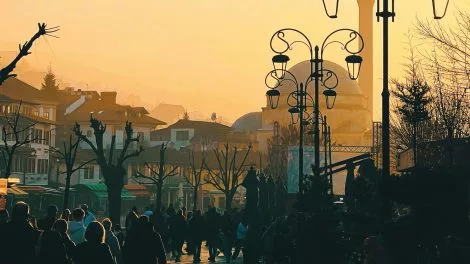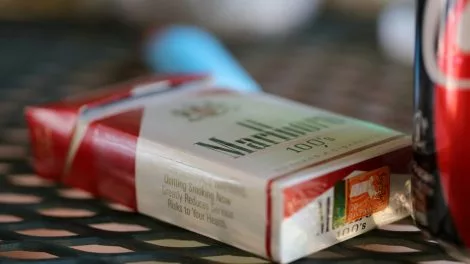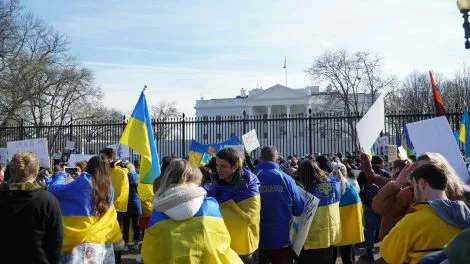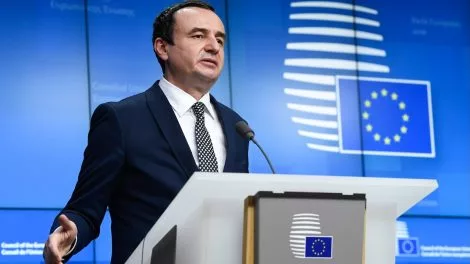Central Europe
The Czech government has backed a memorandum between the Ministry of Industry and Trade and state utility company ČEZ on the construction of a 2 billion euro electric vehicle battery plant which is expected to create at least 2,300 jobs. The EV battery plant, which is a strategic project that will accelerate the transformation of both the energy and automotive industries in the country, is scheduled for completion by 2028, at the latest. The former brown coal-fired power plant Prunerov, belonging to ČEZ, is one of the potential sites for building the factory.
On Monday, the European Union’s Economy Commissioner Valdis Dombrovskis confirmed the Commission’s suggestion to further extend a deadline for its verdict on Hungary’s recovery plan to the end of September. The European Commission had already delayed approval of Hungary’s recovery plan, saying it doesn’t go far enough in combating corruption and potentially risking the timely arrival of billions of euros in funding. The EU could start punishing rule-of-law offenders this year by using a so-called conditionality mechanism to freeze funds from its pandemic stimulus package before they’ve been disbursed. Hungary’s government could potentially miss out on as much as 7.2 billion euros of grants from the EU recovery plan.
PGNiG,Poland’s leading Polish oil and gas company, has terminated a deal with US firm Sempra Energy for liquefied natural gas (LNG) supplies from the Texas Port Arthur project due to delays. State-run PGNiG signed a 20-year agreement with Sempra in 2018 as part of its bigger plan to cut reliance on gas imports from Russia. PGNiG was to receive around 2 million tonnes of LNG per year under the deal, starting from 2023. The Polish company said it signed agreements to increase LNG purchases from US company Venture Global LNG by 2 million tonnes a year to 5.5 million tonnes.
Croatia and Slovenia have established a fund to finance the commercialisation of technological and scientific solutions from universities, research institutes and value centres from the two countries. An agreement was signed by the Croatian Bank for Reconstruction and Development (HBOR), the European Investment Fund (EIF) and the Slovenian Export and Development Bank (SID) in Ljubljana on Monday. The platform will be financed by the two national development banks, each with 10 million euros, and the EIF with an additional 20 million euros.
Bulgarian insurance and asset management group Eurohold Holding has closed the deal to buy the Czech utility company’s assets in Bulgaria for 335 million euros. The group will “aim to support the current and future investment programme of ČEZ in the country.” Eurohold agreed on the deal to buy ČEZ‘s assets in June 2019, but the competition regulator blocked the deal in October 2019, saying that it would create conglomerates in Bulgaria’s insurance market and electricity sector. A court decision in July 2020 granted Eurohold’s appeal against the regulator’s decision.
Bulgaria, Croatia, Czechia, Estonia, Lithuania, Latvia, Poland, Romania, Slovenia and Slovakia and 13 other EU countries may be taken to court for their delay in enacting landmark EU copyright rules into national law, the European Commission said this week. The copyright rules, adopted two years ago, aim to ensure a level playing field between the European Union’s trillion-euro creative industries and online platforms such as Google, owned by Alphabet, and Facebook. The Commission said it had sent letters of formal notice, the first step of its infringement proceedings, to the countries group asking for explanations.

Eastern Europe
On Tuesday, a court in Belarus labelled Belsat, a Polish-funded television channel that extensively covered last year’s anti-government protests in the country as ‘extremist,‘ the latest move in a sweeping crackdown on independent media and civil society activists. The Interior Ministry said that fines or jail time might be imposed on anyone sharing information from Belsat. The court order blocks Belsat’s website and all social media accounts in Belarus.
Georgia‘s ruling party chair Irakli Kobakhidze announced the EU-brokered April 19 deal has been “annulled,” claiming it “served its mission and exhausted itself” 100 days after signing, with the majority of opposition lawmakers having refrained from joining. Eighteen local civil society organisations said, in a joint statement, that Georgian Dream’s withdrawal from the EU-brokered April 19 deal “constitutes a straightforward rejection of Georgia’s Euro-Atlantic course and the peaceful development of the country through democratic reforms,” and is “only a desire to retain power.” They stressed the ruling party “is ready to sacrifice” the country’s prosperity, foreign policy orientation and relations with strategic partners. [Also,] “the United States is deeply disturbed and exasperated by the unilateral decision of the Georgian Dream party. […] This decision by the ruling party only creates more political instability for the country and raises questions about Georgian Dream’s commitment to achieving Georgia’s democratic goals, goals that Georgian Dream itself set for the country,” the US Embassy said in a statement.
Remittances by Ukraine‘s labour migrants are expected to reach 13.3 billion US dollars this year – 11 per cent higher than the 12 billion recorded in 2019 and 2020. Labour will continue to remain the country’s second-largest export, after food. According to the National Bank of Ukraine, the rise in labour remittances is “due to the recovery of the economies of countries of destination of migrant workers and simplification of border crossing conditions by accelerating vaccination.”
North East Europe
A novel blockchain-based solution could in theory support almost unlimited numbers of payments being processed at the same time with a very large money supply and with a smaller carbon footprint than the card payment system. The blockchain-based solution would also permit a good balance between privacy and the need to meet anti-money laundering requirements. These are the conclusions drawn by Eesti Pank, Estonia’s central bank, from a research project into the technical possibilities for a digital euro alongside the European Central Bank and seven other central banks of the euro area.
A Lithuanian court has sentenced politician Algirdas Paleckis to six years in prison after finding him guilty of spying for Russia. According to the Prosecutor-General’s Office, Paleckis and an unspecified number of other Lithuanian citizens allegedly collected information for Russian intelligence for money between February 2017 and October 2018. Russian Foreign Ministry spokeswoman Maria Zakharova said at the time that the arrests were “another Russophobic move” and a “reversal of democratic rights and freedoms” in Lithuania. She failed to reveal the grounds for her statements.
This week, fuel retailer Neste opened what it claimed was Latvia’s first-ever entirely self-service store, entering a new retail segment into the bargain. The new Neste Easy Deli contactless self-service store in Rīga offers food and drinks rather than gas and screen wash. There will be a total of five such stores in Latvia – two in Riga and one each in Salaspils, Ogre and Tīnūži. The total investment in these stores is worth 500,000 euros, the company said. These fully automated stores can be accessed using the Neste mobile app, which acts as an entry key. Purchases can be paid for with a bank card.

South East Europe
The Mini-Schengen initiative has been rebranded to Open Balkan. During a meeting in Skopje, Serbia’s President Aleksandar Vučić and the Prime Ministers of Albania and North Macedonia, Edi Rama and Zoran Zaev, signed three memoranda of understanding covering the movement of goods, free access to the labour market and close cooperation to handle natural disasters. Borders between the three countries will open on January 1, 2023. The remaining three Western Balkans countries — Kosovo, Montenegro and Bosnia and Herzegovina — haven’t yet joined the initiative. “We are once again calling and encouraging other colleagues to join us for the wellbeing of our peoples,” said Zaev. “We are all Balkans. We are all European Balkans.”
Macedonian citizens support EU accession, but not at the cost of their national identity, says a recent report released by the International Republican Institute (IRI) in North Macedonia. EU integration would benefit North Macedonia, likely increasing the overall welfare of citizens and decreasing corruption. However, there is scepticism about whether the country will complete the process of becoming an EU member, expressing concern over the ongoing dispute with Bulgaria and other domestic issues. The study also shows predominantly poor performance of mayors and a lack of citizen involvement with local government, primarily due to disengaged local government. Throughout much of North Macedonia, mayors and municipal councillors need to be more responsive to their constituents through improved delivery of basic services and better communication with citizens regarding their local issues and needs, IRI recommends.
Serbia‘s state-owned telecommunications operator Telekom Srbija is in talks to acquire Posta Net, the cable TV and internet business of another government-owned entity, Posta Srbija. According to Demostat, although Posta Net has only a small market share, by acquiring it the company would see its cable market share in terms of subscribers increase to 54.6 per cent, exceeding the 46.7 per cent of its main competitor SBB. In the cable content sector, SBB was the dominant player at the end of 2020 (45.5 per cent), followed by Telekom (29.2 per cent), Supernova (14.8 per cent), and Posta net (2.7 per cent).
In June 2021, the number of foreign visitors to Albania was similar to the June 2019 figure. Last month 604,381 international tourists entered Albania, 3.4 higher compared to the same time in 2020 when pandemic restrictions were stricter, and only 26,000 fewer than in 2019. The most significant numbers came from Kosovo and North Macedonia. Due to the impact of Covid-19 pandemic on the tourism sector, the number of visitors from Greece, Italy and the United Kingdom have dropped significantly compared to 2019.
Four former senior officials have been convicted of organising the storming of North Macedonia‘s parliament in 2017. The former President of the parliament, two former ministers, and the country’s former intelligence chief were sentenced to up to six-and-a-half years in prison earlier this week. Several North Macedonian MPs, including current prime minister Zoran Zaev, were severely beaten when nationalist protesters stormed the parliament in April 2017. The demonstrators, supporters of former strongman Nikola Gruevski and his right-wing VMRO-DPMNE party, wanted to prevent the Social Democrats from forming a coalition government with Albanian minority groups. Protesters rallied against the election of a new speaker and accused the then-opposition Socialist party of threatening North Macedonia’s national unity.
The top international official in Bosnia and Herzegovina has outlawed denial of genocide in the Balkan country to counter attempts by Bosnia’s Serbs to deny the scope of the 1995 massacre in Srebrenica, Europe’s only post-second world war genocide. Valentin Inzko, the outgoing head of Bosnia’s Office of the High Representative, or OHR, introduced the changes to the country’s criminal code, bringing in prison sentences of up to five years for genocide denial and for the glorification of war criminals, including naming of streets or public institutions after them. PM Ana Brnabić assessed the decision as bad news as it would further distance Sarajevo and the Federation from Republika Srpska.
Central Asia
Silk Road Samarkand, a multifunctional tourist complex in the ancient trade route linking China to the Mediterranean, is scheduled to open for visitors in the first half of 2022. The routes of the Great Silk Road passed through the territory of current-day Uzbekistan from the second century BC until the 15th century, and ancient Samarkand was one of the most important stops for trade caravans. The new complex will house world-class hotels, specialised boutique hotels, contemporary public spaces, parks, recreation and sports areas, authentic restaurants, cafes and bars, and an international congress hall and sites of cultural interest. The project developed by an international team of architects and engineers will allow for combining various thematic zones into a balanced architectural ensemble without parallel in the entire region of Central Asia.
South Korea’s trade ministry said the country plans to expand economic ties with Uzbekistan by launching new projects in a wide array of areas from ICT to the medical sector, as the COVID-19 pandemic has recently weighed down bilateral business cooperation. In January, the two countries said they will seek to clinch a free trade agreement named the Agreement for Sustainable Trade and Economic Partnership (STEP). When completed, the pact with Uzbekistan will mark the first free trade deal signed with a Central Asian nation.
Kazakhstan restored access to LinkedIn, after briefly blocking it this week over what the Central Asian country’s government said were online casino advertisements and fake accounts. The Ministry of Information and Social Development said in a statement it had held talks with LinkedIn representatives and the company had already removed the content deemed illegal by the Nur-Sultan government. LinkedIn said this week it was investigating the issue, saying its own policies prohibited ads relating to gambling and fake profiles. In neighbouring Russia, with which Kazakhstan has close political and economic ties, LinkedIn has been blocked since 2016 when Moscow said the company failed to transfer Russian user data to servers located in the country.
A court in Kyrgyzstan has ordered a resumption of the investigation into the death of human rights defender and journalist Azimjan Askarov while in police custody a year ago. The Bishkek City Court’s decision to send the case back to investigators came four days after several human rights organisations demanded Kyrgyz authorities conduct “an independent investigation” into how the human rights activist died. Askarov was convicted of creating a mass disturbance and being involved in the murder of a police officer during deadly ethnic clashes in 2010. The United Nations Human Rights Committee has described Askarov’s death as “a stain” on the post-Soviet Central Asian country’s rights record.
Main photo: Georgian Dream Facebook Page
Unlike many news and information platforms, Emerging Europe is free to read, and always will be. There is no paywall here. We are independent, not affiliated with nor representing any political party or business organisation. We want the very best for emerging Europe, nothing more, nothing less. Your support will help us continue to spread the word about this amazing region.
You can contribute here. Thank you.

Published by: emerging-europe.com




